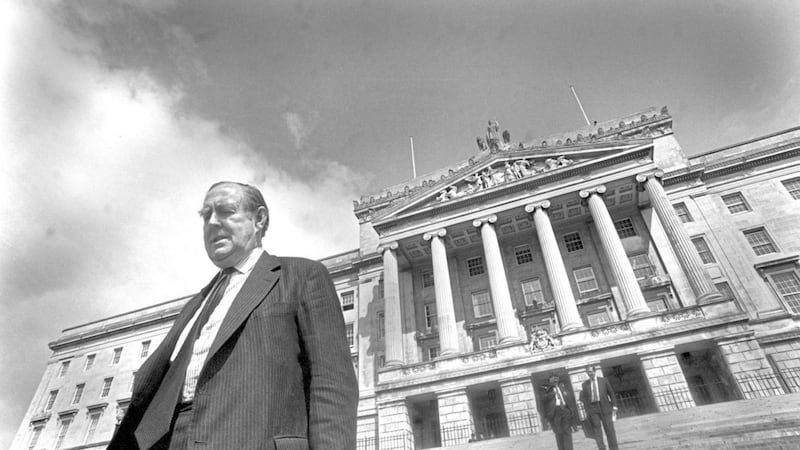The annual release of state papers has become an interesting and at times bleak trip down memory lane.
It's slightly bemusing that 1992 is now deemed long enough ago to be classed as 'historic' as it seems to have passed in the blink of an eye.
Many of those quoted in the historic papers released by Dublin and London at the start of each year, seemed unaware that their gossip and diplomatic faux pas were being recorded and filed away for future public release. I imagine they'd have been much more guarded with their words if they had known.
1992 was the year the UDA was proscribed. Think about that for a second. A paramilitary organisation responsible for murdering hundreds of people was not even illegal until the last few bloody years of the Troubles.
The memory of the attack on Sean Graham's bookmakers, the murder and mayhem that marked that year, seems startling when condensed into document form.
I rarely watch RTÉ's Late Late show now, but for some reason we all watched it in the 1990s.
And I watched from behind my fingers that year as then secretary of state Peter Brooke made a bungling appearance, singing 'My Darling Clementine' shortly after eight Protestant workmen were killed by a massive IRA bomb at Teebane in Co Tyrone.
At the time he was attempting to kick-start a new round of peace talks, but sealed his own political fate that night and was later replaced by Sir Patrick Mayhew.
As I read with interest the wonderful Eamon Phoenix forensic examination of those newly released state papers this week, I was reminded just what a violent place we lived in then.
Is it any wonder that the hangover of those times continues?
Then we had Peter Brooke and his plans for talks he never got to oversee after his public act of career suicide, now the latest secretary of state is preparing for yet another round of talks to try and rescue the crisis hit political situation.
While devolution and the modern Stormont assembly can be traced back to those terrible times, it is at least of some comfort that this current crisis did not result in violence on the streets.
Life for most people has carried on as normal.
The crisis in the health service and the problems facing other public services will not be solved overnight with the return of the executive.
They are problems that existed even before the RHI debacle collapsed the institutions and problems that will still exist whether we have working government or direct rule.
What we won't have under Westminster rule is local accountability, but then voters in Northern Ireland when push comes to shove will vote along tribal lines and the inevitable political conflict that comes with it.
Sinn Féin's refusal to go back into an assembly without resolution to outstanding equality issues is a popular stance with nationalist voters. That was clearly demonstrated in the snap assembly election last year that resulted in the party's best election result to date and the biggest turn out in nationalist areas since the Good Friday Agreement.
The DUP's refusal to give an inch is also popular with their support base, which was again demonstrated in the Westminster election that returned them ten MPs and new-found influence in the UK parliament.
Should an election be called tomorrow it would be unlikely to yield any major change in these voting patterns and in fact would probably wipe out the smaller UUP and SDLP.
All of this leaves the current secretary of state, the uninspiring James Brokenshire, in the inevitable position of reconvening talks to restore the Stormont coalition of inconvenience.
His party's deal with the DUP has soured relations further in the talks process.
It makes me wonder how will the year that was 2017 be recorded in future state papers for a new generation of historians to pore over?
The thoughts of the secretary of state alone would make for interesting reading. I'm sure there are times he feels like bursting into song on the Late Late Show just to make this nightmare end.








